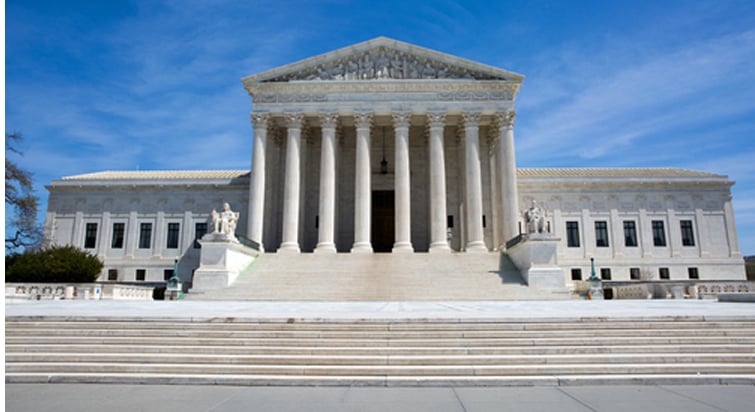Supreme Court rules foreign corporations can't be sued for alleged abuses under alien tort law

Shutterstock.com.
Foreign corporations can’t be defendants in suits for alleged human rights abuses under the Alien Tort Statute, the U.S. Supreme Court ruled on Tuesday.
The high court ruled in a suit that accused Arab Bank and its New York branch of clearing transactions that aided terrorism and laundering money for a group with alleged ties to Hamas. In the claims before the court, about 6,000 foreign nationals allege that they or their family members were injured in terrorist attacks in the Middle East.
The decision clears up a question not addressed in the Supreme Court’s 2013 decision, Kiobel v. Royal Dutch Petroleum. That prior decision adopted a presumption that the Alien Tort Statute doesn’t reach human rights violations committed in other countries.
Five justices in the Arab Bank case agreed that corporate defendants can’t be sued under the law, though Samuel A. Alito Jr. and Neil M. Gorsuch wrote separate concurrences that differed with the approach taken by Justice Anthony M. Kennedy in his opinion for the court.
The justices who joined Kennedy’s opinion in full were Chief Justice John G. Roberts Jr. and Clarence Thomas, who said in a concurrence that he also agreed with points made by Gorsuch and Alito.
In a part of his opinion joined by the five justices, Kennedy said it is generally up to Congress to decide whether corporate defendants are subject to suit. Neither the language of the alien tort law nor the precedent interpreting it support an exception to that general principle, he said.
Alito said in his partial concurrence he would go beyond Kennedy’s opinion and hold that the ban on corporate defendants under the law is mandated by separation of powers. In another partial concurrence, Gorsuch wrote that courts “should not meddle in disputes between foreign citizens over international norms” and courts “should refuse invitations to create new forms of legal liability.”
In a dissenting opinion, Justice Sonia Sotomayor said the court’s decision absolves corporations for responsibility under the law for “conscience-shocking behavior.” She said she disagreed “both with the court’s conclusion and its analytic approach.”
Her opinion was joined by Justices Ruth Bader Ginsburg, Stephen G. Breyer and Elena Kagan.
The case is Jesner v. Arab Bank.



